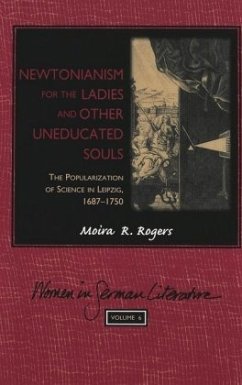In the course of the eighteenth century, lay people came to see science as an authority beyond criticism. The cultural status that science acquired continued for centuries and, even though it has been challenged in our times, science is still one of our main sources of meaning. In spite of universalist claims, eighteenth-century philosophers and popularizers did not grant women-traditionally the emblem of the uneducated-access to the sanctuary of science. Rather, the popularization of science functioned as an effective means for preaching the Enlightenment gospel to an educated laity. Popular science works are fragments in the composition of a new human and social ideal, in which science plays a crucial part. They are key building blocks in the construction of a learned worldview shaped by Enlightenment ideals, tensions, and contradictions.




